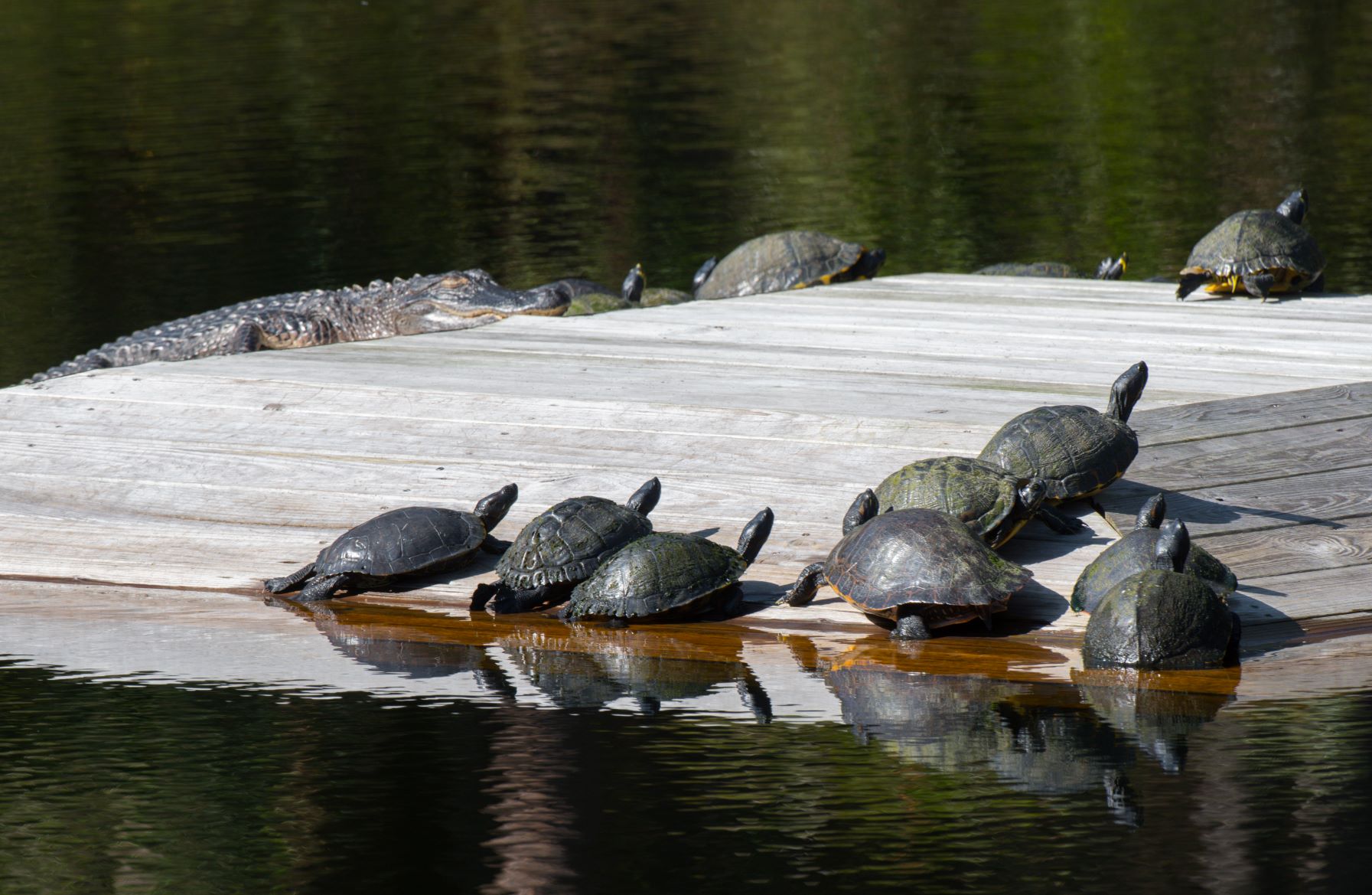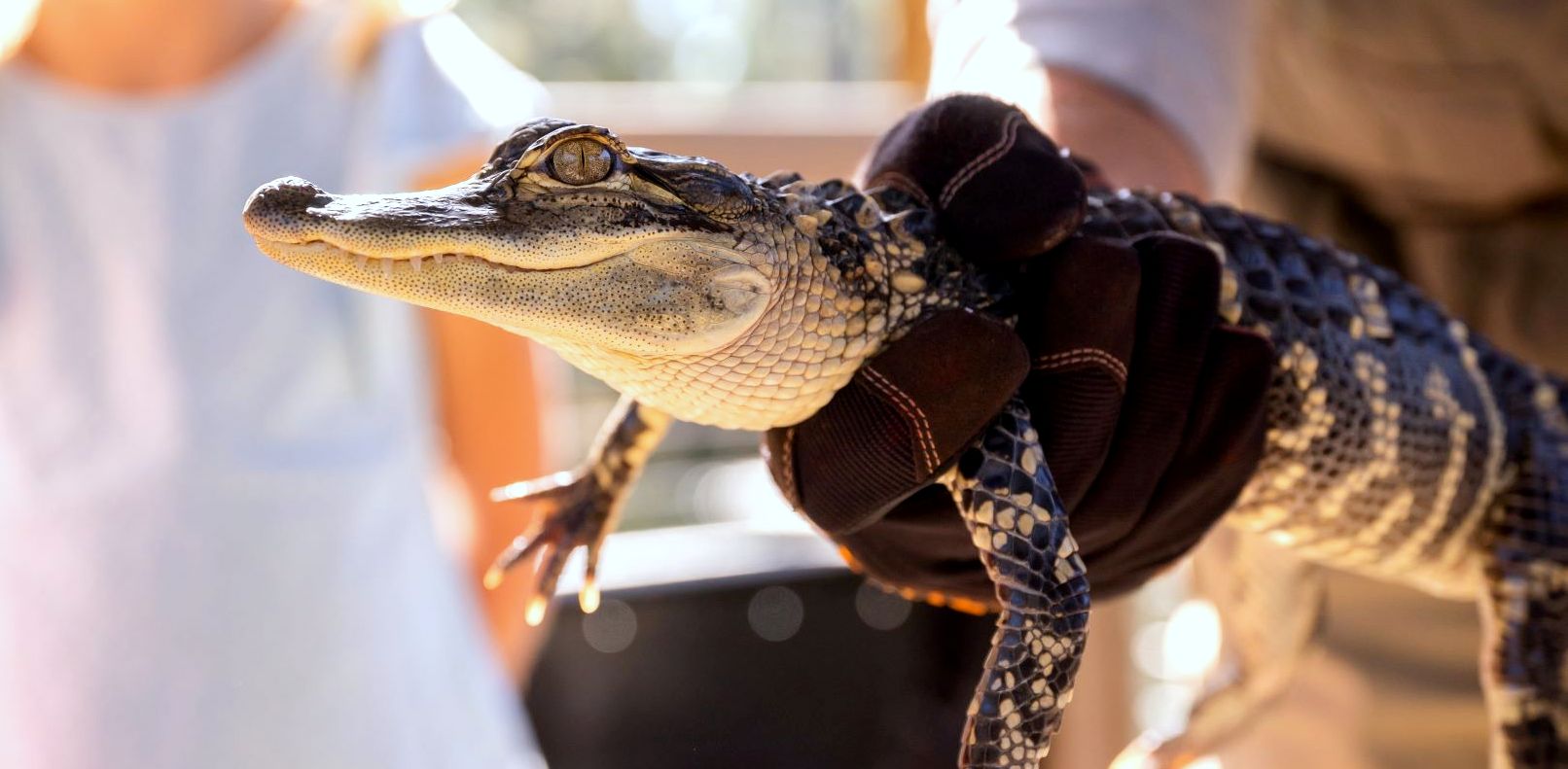by Yank Moore, JIA Natural Resources Manager
Horton Pond has become a destination for many guests and their families while visiting Jekyll. The wildlife viewing area, basking platform, and nature trail funded by the Jekyll Island Foundation allows visitors a chance to experience the American Alligator, Night Herons, Wood Ducks, and various other wildlife in their natural habitat. The JIA Conservation team’s goal for this project has been to provide a space for people to enjoy nature while improving habitat value for wildlife, increase educational opportunities, and encourage guests to become better stewards of the environment.
Beyond what is visible to the public, the JIA’s Conservation Department manages Horton Pond to be as productive and natural as possible without using harsh chemicals or other invasive means of control. Instead, sterile grass carp were introduced to eat the underwater aquatic plants that would normally take herbicide to control, and a recently installed solar aeration system to supply much needed oxygen for fish and other underwater wildlife to flourish.
Recently another upgrade was made to the pond. Funded by generous donors of the Jekyll Island Foundation, a solar aeration system was installed to not only provide oxygen, but enhance water quality, limit excess nutrients, and keep algae from causing issues for wildlife. Horton Pond is man-made and has no natural water input like a stream or river so it must rely on surface runoff and groundwater. Without management this pond could suffer from a stagnation effect and without the aeration system the pond could go through cycles of bad health. The system installed at Horton Pond is powered completely by a solar panel harnessing the power of the sun and is efficient enough with timers and controls to run even on cloudy days.
To see the system in action, visit Horton Pond early in the mornings when aeration system is on and when the pond needs it the most.

